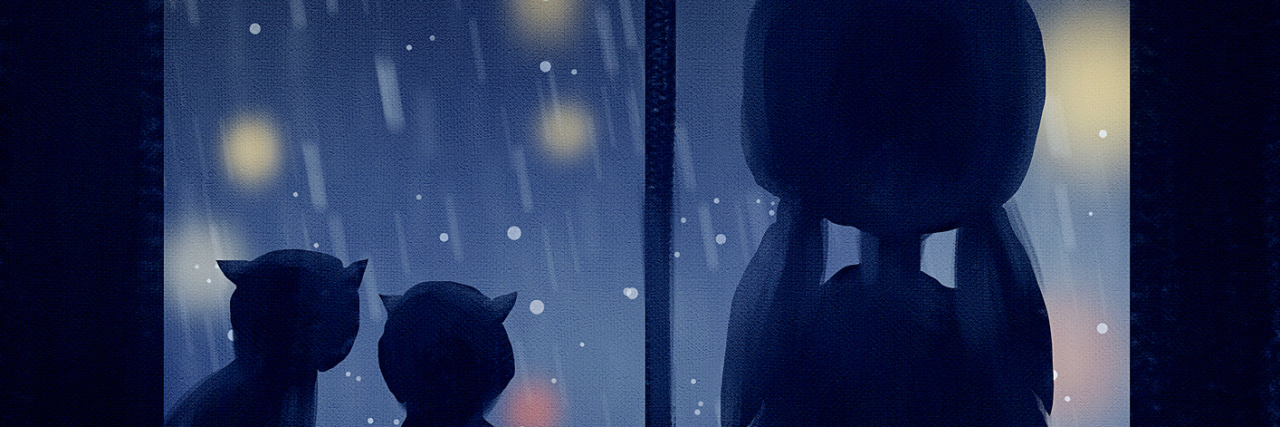I find hypersensitivity one of the hardest myalgic encephalomyelitis/chronic fatigue syndrome (ME/CFS) symptoms to cope with as it can be so isolating. Hypersensitivity comes in many forms: hypersensitivity to light, touch, noise, smells, foods, medication, chemicals, heat, cold and irritants like pollen and dust. All of these things can cause pain, nausea, fatigue, headaches and migraines. The slightest stimulus heightens our senses and causes palpitations, sweats, tinnitus, dizziness, chest pains and difficulty breathing.
The only way to avoid this pain and scary symptoms that accompany hypersensitivity is to avoid contact with the stimulus that causes the harm — this is the isolating part. I have no option but to live in a darkened room. I have to avoid noise, strong smells and touch from loved ones. My sense of smell is so acute at times, I can smell a bar a chocolate from the other side of the room — not the best superpower, but it’s quite impressive. My diet is so restricted and I am unable to take most prescription medication which may be able to relieve some of my discomfort. Loud noises like fireworks are unbearable and traumatic.
But the world is a busy, smelly, noisy place. If I have to leave the protective cocoon of my room for hospital appointments, I am met with an onslaught on my senses — a sensory overload. It feels like a million people are shouting at me from all directions. It’s not just painful and exhausting — it’s terrifying. My heart races and I feel like I’m going to collapse — I want to run and hide but I freeze on the spot, terrified.
Imagine a life spent avoiding human contact because you are too scared of the consequences. Imagine a life where the softest touch from your partner causes you to flinch with pain. Imagine a life where your care worker’s perfume makes you so ill you are unable to function for hours. Imagine a life where you fear sunlight and spend your days hiding in a room darkened by blackout blinds (I used to read books about vampires all the time — now I have become one). Imagine a life where you have to wear earplugs even in the most quiet environments. Imagine a life where you can’t watch TV or listen to your favorite music because it’s too painful and exhausting. Imagine how isolating this life is — it’s very easy to feel alone and forgotten.
I have always been a very sociable person. I used to thrive in busy environments and I loved being surrounded by large groups of friends. I was always the life and soul of the party, but now this scenario feels me with sheer panic. I miss human interaction. I miss being surrounded by friends, I miss being carefree.
So the next time you visit a friend who has ME/CFS, please consider what you are bringing into their environment. If possible, don’t wear perfume — even your washing powder could cause your friend harm. Lower your speaking tone down a couple of notches. They may be too sensitive to give you a hug or to tolerate any physical contact, so please ask first. Be prepared to sit in the dark while you chat. And please, no sudden movements — these can set off the same symptoms. But most importantly, please do not avoid visiting or speaking to your friend just because you are afraid you will cause them harm. We still crave human interaction and your visit could give them the mental lift they need to fight another day. A few adjustments in your behavior can make a big difference.
When my best friend comes to visit me she always leaves saying, “I feel so bad, I know I have exhausted you.” Yes, it will take me days to recover from her visit but the memory of her smiles, stories and kind comments will last much longer. Feeling “normal” even just for a few minutes is often worth the payback. Human interaction is vital for our mental well-being and it helps us to feel less isolated and alone.
If you are someone that regularly visits a friend suffering with ME/CFS, thank you — your presence will mean much more than you will ever know.
Getty photo by Archv

